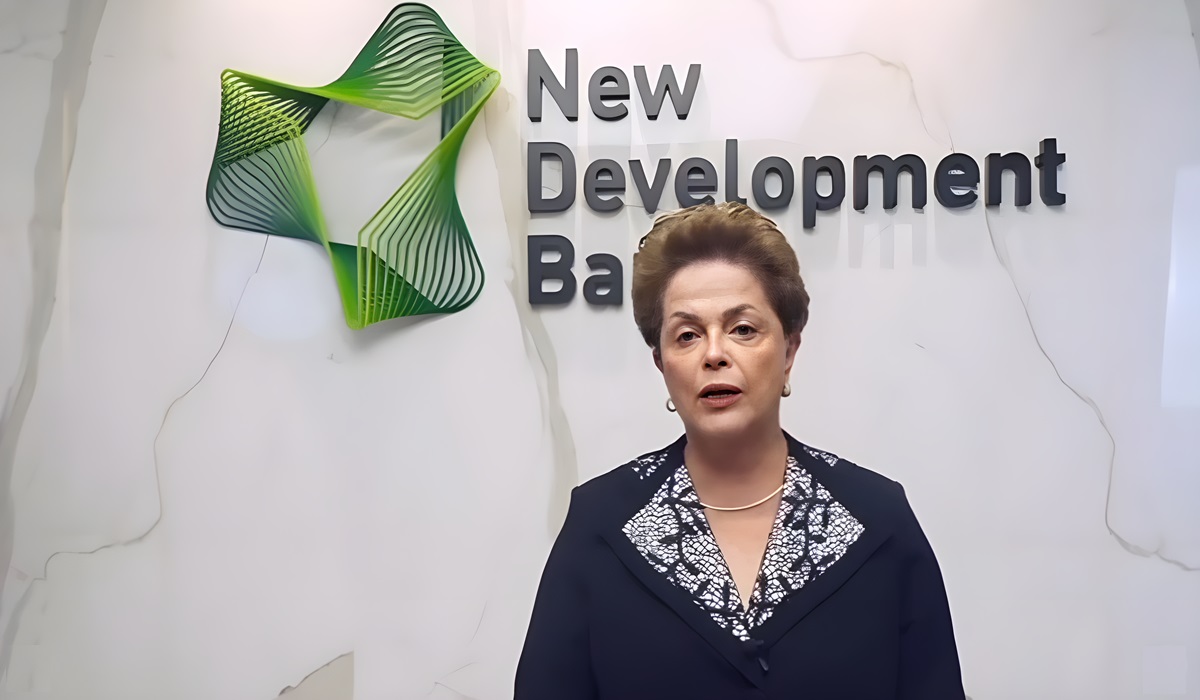Image Credit, BRICS Social Feed
The appointment of Dilma Rousseff as President and CEO of the BRICS New Development Bank in 2023 is pivotal for both the institution and the global financial landscape. For nearly a decade, the bank has quietly supported important development projects across the global South, but with Rousseff at the helm, it is now stepping into a more assertive role. This leadership change reflects a broader movement towards a multipolar world, where developing nations are no longer beholden to the traditional financial powers of the West.
Rousseff, Brazil’s first female president, is a seasoned leader with a deep understanding of the economic and social challenges faced by developing nations. Her tenure in Brazil was marked by a strong commitment to reducing inequality, fostering economic growth, and advancing social welfare. She led initiatives that significantly expanded access to education and healthcare, and she was a champion for infrastructure development—an area that is at the heart of the BRICS New Development Bank’s mission.
The bank, under Rousseff’s leadership, offers a real alternative to the often-punitive practices of institutions like the World Bank and the International Monetary Fund (IMF). These Western-led institutions have long imposed stringent structural adjustment policies on borrowing nations, forcing them to implement austerity measures, privatize public assets, and cut essential social programs. Such policies have often led to economic stagnation and deepened inequality, leaving these countries trapped in cycles of debt and dependency.
In contrast, the BRICS bank prioritizes the economic sovereignty of its member states. It provides financial support tailored to the unique needs of each country, without imposing harsh conditions that undermine their long-term development. A key feature of the bank’s approach is its policy of offering loans in local currencies. For many developing nations, borrowing in U.S. dollars has been a significant burden, exposing them to the risks of volatile exchange rates and making it more difficult to manage and repay debts. By allowing countries to borrow in their own currencies, the bank not only mitigates these risks but also strengthens domestic economies, promoting sustainable growth.
This approach is crucial in today’s evolving global order. As the world shifts towards a multipolar reality, where power and influence are more evenly distributed, the need for financial institutions that genuinely support the development goals of the global South has never been greater. The BRICS New Development Bank is positioned to be a leader in this new order, providing a platform where developing nations can access the resources they need to grow and thrive on their own terms.
Rousseff’s leadership is a natural fit for the bank’s mission. Her experience as a leader who has navigated complex economic challenges, and her commitment to social justice, make her well-suited to guide the institution through this critical period. Her focus on infrastructure development, in particular, aligns closely with the bank’s emphasis on long-term, sustainable projects that build the foundations for economic resilience.
The rise of the BRICS bank under her guidance also signals a significant shift in the global financial system. For decades, the World Bank and IMF have dominated the scene, but their approaches have often failed to address the root causes of poverty and underdevelopment. The BRICS bank offers a different path—one that is based on mutual respect, economic empowerment, and genuine partnership. It provides developing nations with the tools they need to become integral parts of the global economy, rather than remaining on the periphery.
In this new multipolar world, the BRICS New Development Bank represents a vital opportunity for developing nations to break free from the constraints of traditional financial systems and chart their own course towards prosperity. Under Rousseff’s leadership, the bank is poised to take on an even more significant role, offering a model of development finance that truly serves the interests of the global South. This is not just a change in leadership; it is the rise of an institution that is ready to reshape the future of global development, empowering nations to succeed and build a more just and equitable world.









